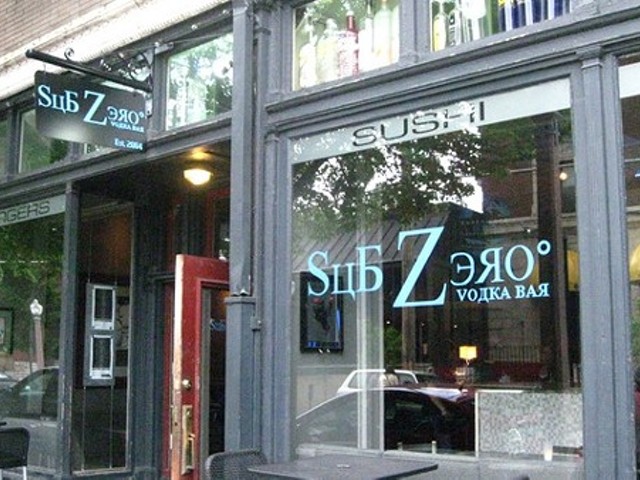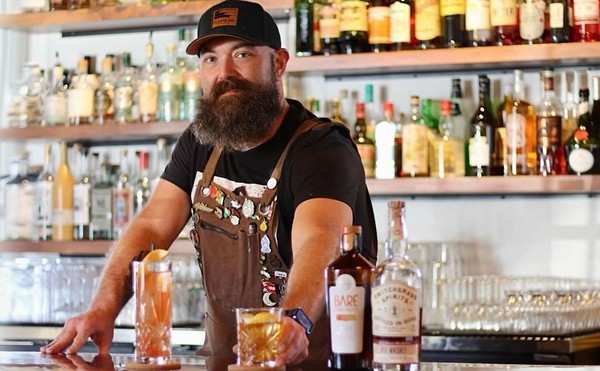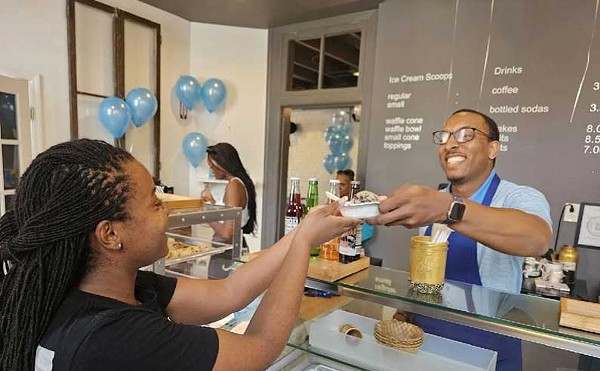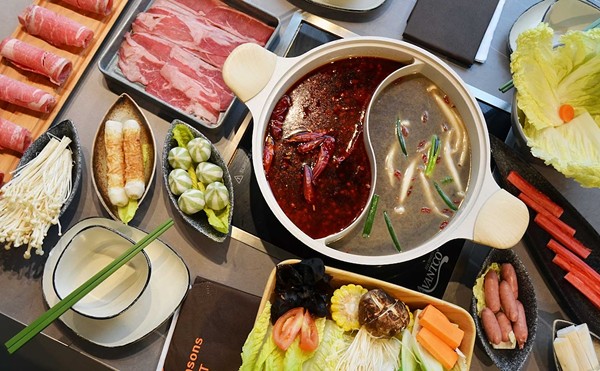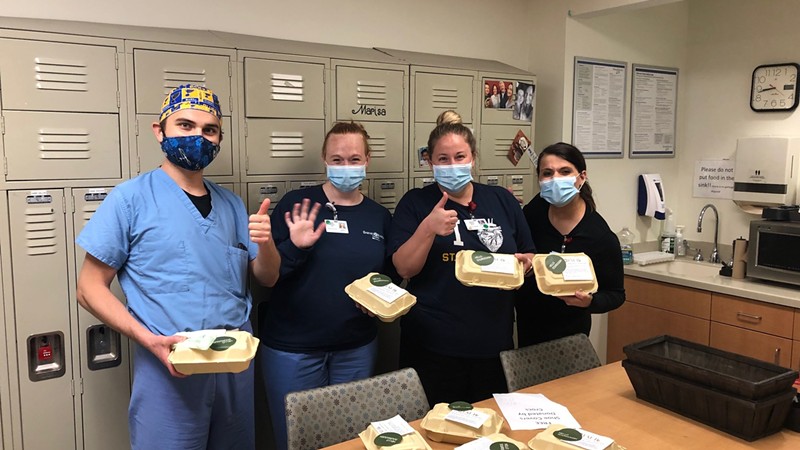
DAWN BOOTH
Meals for Meds, now aligned with Frontline Foods, brings the comfort of good food to health care workers.
About six weeks ago — as the COVID-19 crisis threw his professional life into upheaval and called the fate of the entire restaurant industry into question — John Perkins had an idea. Why not figure out a way to keep his staff employed and busy by feeding area health care workers?
That win-win idea launched the local, grassroots movement Meals for Meds, which grew from just two participants into a 27-restaurants-strong organization. For nearly two months, Perkins, who owns Juniper (4101 Laclede Avenue, 314-329-7696), and his co-organizer, Kirsten Brown of KNEAD Bakehouse (3467 Hampton Avenue 314-376-4361), have been managing the program while also trying to run their own restaurants. Now, they are getting some help through a partnership with the national organization Frontline Foods to carry on their mission as their businesses begin to reopen.
"We didn't realize how much work this would be — in some ways we managed to do it well; in others, we didn't," Perkins says. "It got overwhelming pretty quickly. Now that we are starting to reopen, we can't do all this and run a restaurant at the same time. If we were getting massive corporate donations, we could hire someone. This partnership with Frontline is a partnership with [chef José Andres'] World Central Kitchen. We get visibility from that. Frontline was able to get 501(c)(3) status, so we can now pitch the program to big corporate donors."
Frontline Foods has a similar origin story to that of Meals for Meds. After organizers of an effort in San Francisco to feed health care workers realized that there were other restaurants doing similar work around the country, they came together to combine their work into a collective effort in order to expand their reach. This led to Frontline Foods linking up with Andres' World Central Kitchen in order to get non-profit status much quicker than if they were to have applied to do so as their own independent entity.
Frontline Foods works exactly the same way as Meals for Meds. Diners can give money directly to participating restaurants of their choice through Frontline Foods' website (for now, diners can still use the Meals for Meds site, though the idea is for that to be phased out). That money goes to the restaurant of choice and is used to pay for their costs in providing food to health care workers.
The partnership with Frontline Foods frees up Perkins and Brown from the daily management of getting funding to restaurants and food to hospitals. Now team leaders, the two are more like liaisons with the national organization. But it's not just a logistical benefit for Perkins and Brown. As Perkins explains, many donors had been asking about things such as tax benefits, but because the group was just a collective of for-profit businesses, they could not offer such a benefit. Now, donors are eligible for that tax benefit. Additionally, the partnership benefits restaurants, because Frontline Foods can process donations much quicker. Participants are usually compensated for expenses by the next day.
"The infrastructure they have allows us to do so much more than our Google Drive and shared documents," Brown explains. "The amount of volunteers they have and their ability to teach people their technology on a national basis is very well supported."
As Perkins sees it, Meals for Meds' partnership with Frontline Foods guarantees the initiative's longevity by formalizing it and making it possible for it to grow, even as he and Brown's ability to manage it diminishes. He feels that formalization is important because of the potential for a resurgence of the virus, or even the next global pandemic, whatever that will look like.
"I expect next fall, winter, spring — God forbid — we will have round two," Perkins says. "We're planning for next season. If we have systems in place, we. have four, five or six months to home in on how this works and build a funding mechanism. That will allow us to get some money banked so that when this comes back around, we can reactivate it.
We are always hungry for tips and feedback. Email the author at [email protected].


